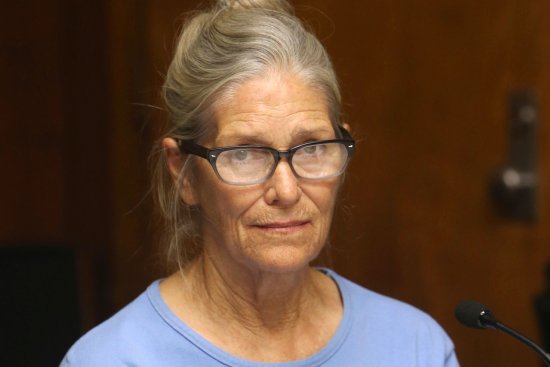
The youngest Manson follower was convicted in 1971 for the murders of a grocery-store-chain owner and his wife
A California appeals court recommended on May 30 that Leslie Van Houten, the youngest follower of the so-called “Manson family,” be paroled and released from prison.
In 1971, Van Houten was one of several followers of the cult leader Charles Manson convicted for the Aug. 10, 1969, murders of grocery-store-chain owner Leno LaBianca and his wife Rosemary, There are various theories about the motives for the crime, but one of them suggests that Manson may have wanted money from LaBianca, who liked to gamble. The murders came a day after Manson followers murdered actress Sharon Tate in a home she shared with film director Roman Polanski, killing four other people on the property as well in what TIME magazine called “one of the grisliest, bloodiest” and “most senseless crimes of the century.”
Van Houten, who was not involved in the Tate killing, was only 19 when she joined the cult. In 1969, TIME reported on the “magic” that drew followers to Manson. As the magazine described the Death Valley-based cult in the Dec. 12, 1969, issue, “they holed up in run-down cabins and led an indolent, almost savage existence, singing Manson’s songs, dancing, swimming in a small pool, stealing cars for cash and picking through garbage for food.” At various parole hearings, Van Houten said her parents’ divorce, substance-abuse issues, and an illegal abortion left her vulnerable to the cult’s allure.
[time-brightcove not-tgx=”true”]More from TIME
Manson died in 2017 while serving a life sentence. Van Houten was initially sentenced to death, but California temporarily banned the death penalty in 1972. Since 1982, Van Houten, now 73, has had 21 parole hearings, the Associated Press reports.

The May 30 opinion from a Los Angeles appeals court reverses Governor Gavin Newsom’s 2020 decision blocking Van Houten’s parole, stating that there is “no evidence to support the Governor’s conclusions” that she was unfit for parole. Over the years, Van Houten’s legal team has pointed out that she earned advanced degrees while incarcerated and tutored other inmates.
“Van Houten has shown extraordinary rehabilitative efforts, insight, remorse, realistic parole plans, support from family and friends, favorable institutional reports, and, at the time of the Governor’s decision, had received four successive grants of parole,” according to the court’s opinion. “Although the Governor states Van Houten’s historical factors ‘remain salient,’ he identifies nothing in the record indicating Van Houten has not successfully addressed those factors through many years of therapy, substance abuse programming, and other efforts.”
Van Houten’s attorney, Nancy Tetreault, told CNN that she’s gearing up for a lengthy legal battle, as she thinks it’s likely the California Attorney General’s office will ask the state’s Supreme Court to decide next steps for the case. She also expects the Attorney General to recommend that Van Houten stay in prison while her case is reviewed.
While Van Houten has not made any public comments about Tuesday’s decision, she expressed the remorse she feels about the 1969 killings at a parole hearing in 2017. “To tell you the truth, the older I get the harder it is to deal with all of this, to know what I did, how it happened,” she said, describing how she’s undergone extensive therapy to deal with this question. “I feel absolutely horrible about it, and I have spent most of my life trying to find ways to live with it.”